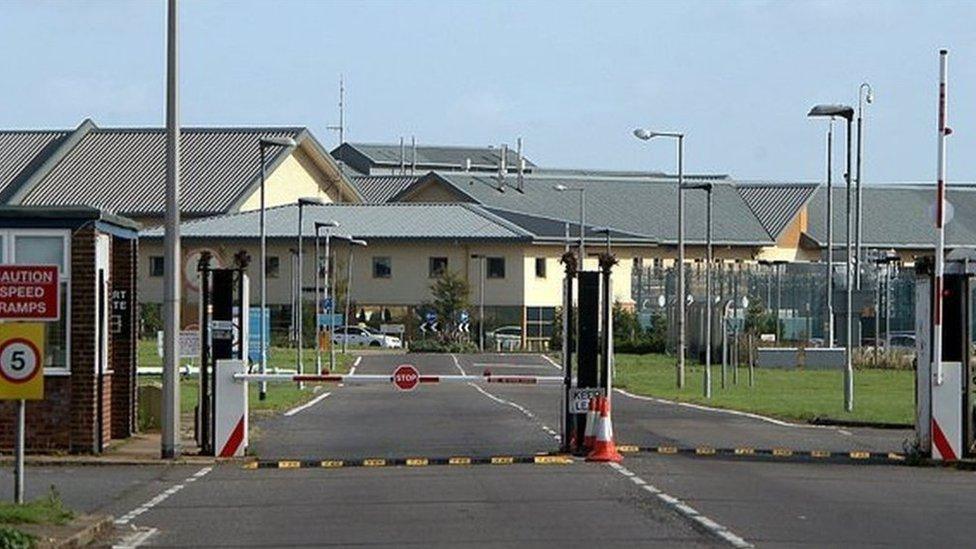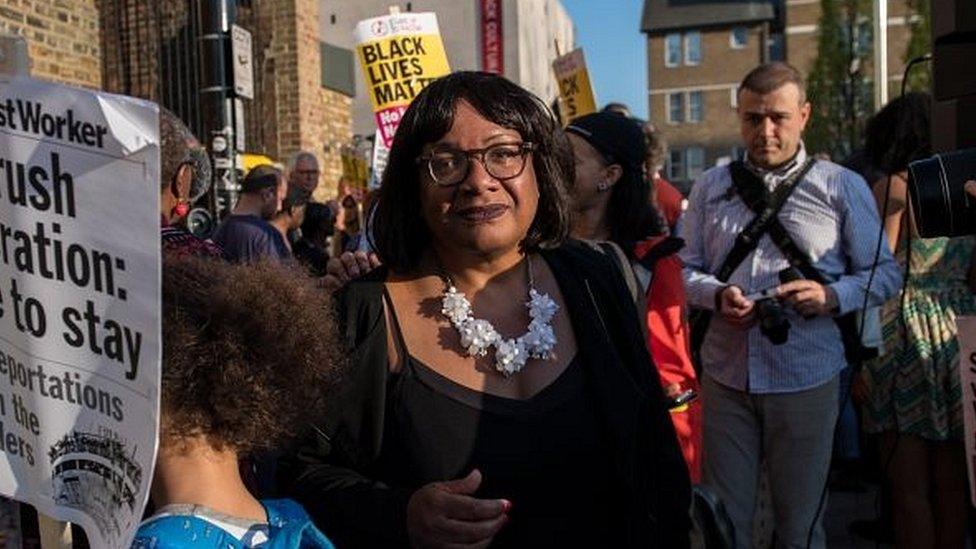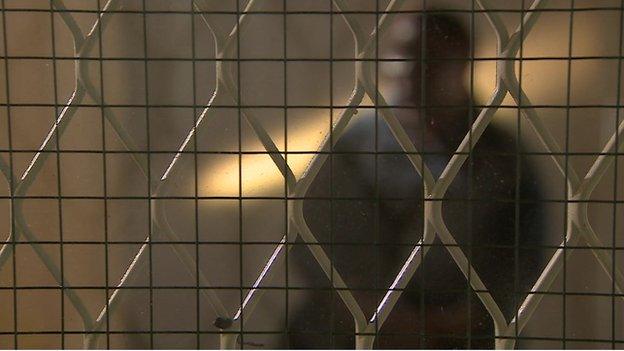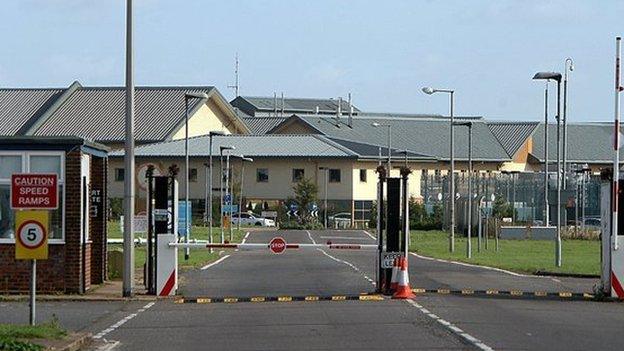Plan to keep vulnerable women out of detention centres
- Published

MPs have called for an end to indefinite detention at Yarl's Wood Immigration Removal Centre
Vulnerable women will no longer be detained at Yarl's Wood Immigration Removal Centre in a pilot scheme, the home secretary has announced.
Sajid Javid said the pilot programme would mean they could stay in the community instead of being locked up.
He also pledged to end overcrowding at detention centres, where three people were often held in a room for two.
But opposition politicians said he had failed to end the "mental torture" of indefinite detention.
Responding to the second independent review of immigration detention conducted by former prisons ombudsman Stephen Shaw, Mr Javid said that "there are lessons we must learn".
Review time limits
"The government's starting point, as always, is that immigration detention is only for those whom we are confident that other approaches to removal will not work," he told the House of Commons.
He announced a pilot scheme, designed with the UN's refugee agency, to keep vulnerable women in the community instead of detaining them at Yarl's Wood.
The centre in Bedfordshire, which holds the majority of female detainees, has been dogged by protests, allegations of abuse by staff and concerns about healthcare.
Mr Javid also said he would "stop immediately" the practice of holding three detainees in rooms built for two people.
He added there would be a review of the time limits for detention, comparing the UK's practice to other countries.
'Kafkaesque nightmare'
Shadow home secretary Diane Abbott said the current practice of indefinite detention meant people in removal centres were treated worse than prisoners.
"If you are in prison you have a date for release. This notion of indefinite detention is one of the things about our current immigration detention system which is the hardest to defend," she said.
Caroline Lucas, co-leader of the Green Party, also called for an end to the "Kafkaesque nightmare" and "mental torture" of indefinite detention.
The Home Office had previously pledged not to detain "adults at risk" in a policy launched in 2016.
It defined adults at risk as those who have experienced traumatic events such as trafficking, torture or sexual violence, as well as those with health problems which put them at risk of harm in detention.
But Yvette Cooper, the Labour chair of the Home Affairs Committee, said she had heard cases of "recognised torture victims" being held for "many months".
Liberal Democrat Home Affairs spokesman Sir Ed Davey said the second report only highlighted the "total failure" to respond to the original report's recommendation to seek alternatives to detention.
- Published16 May 2018

- Published12 August 2015

- Published10 June 2015
